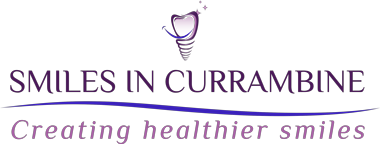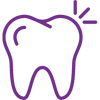Teeth grinding, medically known as bruxism, is a prevalent condition affecting many individuals across different age groups. This involuntary habit involves clenching, grinding, or gnashing the teeth, typically during sleep but sometimes during waking hours. People may not be aware that they grind their teeth, making it a challenging condition to diagnose and manage. Bruxism can be caused by various factors, including stress, anxiety, misaligned teeth, or sleep disorders. If left untreated, teeth grinding can lead to significant dental problems such as tooth wear, jaw disorders, headaches, and even damage to the enamel and other structures in the mouth. This article explores the symptoms, diagnosis, and various treatment options available to manage teeth grinding effectively.
Symptoms of Teeth Grinding
Identifying the symptoms of teeth grinding is crucial in seeking timely intervention and preventing long-term damage. Here are the common symptoms associated with bruxism:
- Jaw Pain or Discomfort: One of the most noticeable signs of teeth grinding is pain or discomfort in the jaw, particularly upon waking. This pain may radiate to other parts of the face and can lead to a condition known as temporomandibular joint disorder (TMJ), which affects the joint connecting the jawbone to the skull.
- Headaches: Individuals who grind their teeth often experience tension headaches, especially around the temples. These headaches typically occur upon waking and may persist throughout the day, affecting concentration and overall quality of life.
- Tooth Damage: Grinding can cause significant wear and tear on the teeth. Over time, this can lead to flattened, chipped, or fractured teeth. In severe cases, the inner layers of the teeth may become exposed, increasing the risk of cavities and tooth sensitivity.
- Earaches: Although bruxism does not directly affect the ears, the pressure and tension from clenching the jaw can cause a sensation of ear pain or fullness. This symptom is often mistaken for an ear infection.
- Increased Tooth Sensitivity: As grinding wears down the enamel, teeth become more sensitive to hot, cold, sweet, or acidic foods and beverages. This sensitivity can be uncomfortable and may impact eating and drinking habits.
- Disturbed Sleep: Teeth grinding is often accompanied by other sleep disturbances, such as snoring or sleep apnea. Additionally, the noise of grinding can disturb a partner’s sleep, creating further sleep-related issues.
- Teeth Marks on the Tongue or Cheek: Chronic bruxism can cause impressions on the sides of the tongue or inside the cheeks, indicating frequent pressure and friction.
Diagnosis of Bruxism
Accurate diagnosis of bruxism is essential for effective treatment. Here’s how dental professionals typically diagnose this condition:
- Clinical Examination: A dentist will begin by examining the patient’s mouth, checking for signs of tooth wear, damage, or misalignment. They will also feel the jaw muscles for signs of tenderness, enlargement, or excessive wear.
- Patient History: Discussing symptoms with the patient, such as jaw pain, headaches, or earaches, helps the dentist assess the likelihood of bruxism. Questions about stress levels, sleep patterns, and lifestyle habits can also provide valuable insights.
- Use of Diagnostic Tools: Dentists may use diagnostic aids such as dental X-rays to check for underlying issues with the teeth and jawbone. In some cases, sleep studies might be recommended to monitor for teeth grinding during sleep, especially if the patient also exhibits signs of sleep apnea.
- Wearable Devices: Some patients may use wearable devices like bite strips or specialised monitoring tools to detect grinding activity. These devices record muscle activity overnight, providing valuable data to confirm bruxism and guide treatment.
Effective Treatment Options for Teeth Grinding
Treatment for teeth grinding varies based on its severity and underlying causes. Here are some of the most effective treatment options:
1. Mouthguards for Teeth Grinding
Custom-fitted mouthguards, also known as night guards or occlusal splints, are one of the most common and effective solutions for managing bruxism. These guards are designed to be worn over the teeth while sleeping and serve several purposes:
- Protecting Teeth from Damage: Mouthguards create a barrier between the upper and lower teeth, preventing the wear and tear caused by grinding. They help to distribute the force exerted during grinding evenly across the teeth, minimising damage.
- Reducing Jaw Tension: By cushioning the teeth, mouthguards can help relax the jaw muscles, reducing strain and alleviating pain associated with bruxism. This can lead to a reduction in symptoms such as headaches and jaw discomfort.
- Improving Sleep Quality: Mouthguards can reduce the noise associated with grinding, allowing for a more restful sleep for both the patient and their sleeping partner.
- Customisation for Comfort: Custom-fitted mouthguards are made from moulds of the patient’s teeth, ensuring a comfortable and secure fit. Unlike over-the-counter options, these guards are tailored to individual needs, providing better protection and comfort.
2. Stress Management Techniques
Since stress and anxiety are significant contributors to teeth grinding, incorporating stress management techniques can be highly beneficial:
- Mindfulness and Relaxation: Practices such as mindfulness meditation, deep breathing exercises, and yoga can help reduce stress levels and promote relaxation. These techniques teach individuals to become more aware of tension in their bodies, helping to prevent unconscious clenching of the jaw.
- Counselling and Therapy: Cognitive Behavioral Therapy (CBT) can be effective for individuals whose bruxism is linked to stress or anxiety. CBT helps people identify and change negative thought patterns and behaviours, reducing stress and the likelihood of teeth grinding.
- Lifestyle Changes: Reducing caffeine and alcohol intake, avoiding stimulating activities before bedtime, and establishing a regular sleep schedule can all contribute to lower stress levels and reduced bruxism.
3. Medications
In some cases, medications may be prescribed to manage bruxism:
- Muscle Relaxants: Prescribed to be taken before bedtime, muscle relaxants can help reduce the tension in the jaw muscles, decreasing the frequency and severity of grinding episodes.
- Botox Injections: Botox can be used to weaken the jaw muscles, preventing them from contracting with excessive force. This treatment is particularly effective for severe cases of bruxism that do not respond to other therapies.
- Anti-Anxiety Medications: If bruxism is related to high levels of anxiety or stress, anti-anxiety medications or antidepressants may be prescribed to help manage these underlying issues.
4. Dental Corrections
Teeth grinding can sometimes be caused by misaligned teeth or bite issues. In such cases, dental corrections may be necessary:
- Orthodontic Treatment: Braces or clear aligners can be used to correct misaligned teeth, ensuring that the teeth meet correctly and reducing the risk of grinding.
- Dental Restorations: If bruxism has led to significant tooth damage, restorations such as crowns, overlays, or bonding may be required to rebuild the teeth and restore proper bite alignment.
- Bite Adjustment: Dentists may perform selective reshaping of the teeth, known as occlusal adjustment, to correct the bite and minimise the risk of grinding.
Preventive Measures
In addition to direct treatment, preventive measures are essential in managing bruxism effectively:
- Good Sleep Hygiene: Establishing a routine that promotes restful sleep can help reduce bruxism. This includes maintaining a consistent sleep schedule, creating a comfortable sleeping environment, and avoiding caffeine or alcohol before bed.
- Jaw Exercises: Gentle exercises to stretch and relax the jaw muscles can alleviate tension and reduce the frequency of grinding. A dentist or physiotherapist can recommend specific exercises tailored to the individual’s needs.
- Avoiding Stimulants: Reducing the intake of caffeine, nicotine, and other stimulants can help manage stress levels and prevent grinding. These substances can increase muscle activity, making bruxism more likely.
- Awareness and Behavior Modification: Becoming aware of daytime grinding or clenching and consciously relaxing the jaw can help prevent damage. Techniques such as placing the tip of the tongue between the teeth can remind individuals to keep their jaws relaxed.
Myths and Misconceptions about Teeth Grinding
Despite its prevalence, there are several myths and misconceptions about teeth grinding that can lead to misunderstandings and improper treatment:
- “Only children grind their teeth.” While it is true that many children experience bruxism, especially during growth phases, it is also common among adults. Stress, lifestyle factors, and other issues can lead to teeth grinding at any age.
- “Teeth grinding is harmless.” This misconception can lead to individuals ignoring the signs of bruxism. In reality, teeth grinding can cause serious dental problems, including tooth fractures, gum recession, and chronic pain if not treated.
- “A mouthguard will cure bruxism.” While mouthguards are effective in protecting the teeth from damage, they do not address the underlying causes of bruxism, such as stress or misalignment. A comprehensive approach, including lifestyle changes and possibly dental corrections, is often necessary for long-term relief.
Conclusion
Teeth grinding, or bruxism, is a significant dental concern that requires prompt attention and treatment. Understanding the symptoms, obtaining an accurate diagnosis, and exploring effective treatment options are key to managing bruxism and protecting oral health. From custom-fitted mouthguards and stress management techniques to dental corrections and medication, there are numerous ways to alleviate the discomfort and damage caused by teeth grinding. Additionally, adopting preventive measures and debunking common myths can help individuals better manage their condition. If you suspect you have bruxism, consulting with a dental professional is the first step towards finding a tailored treatment plan that suits your needs, ensuring a healthy and comfortable life free from the adverse effects of teeth grinding.
FAQ
Teeth grinding, or bruxism, is the involuntary clenching, grinding, or gnashing of teeth, often during sleep. It can be caused by a variety of factors, including stress, anxiety, sleep disorders, misaligned teeth, and lifestyle habits. Some individuals may also grind their teeth due to pain or discomfort, using the grinding motion as a response to alleviate symptoms.
The most effective treatment options for teeth grinding include using custom-fitted mouthguards to protect the teeth, engaging in stress management and relaxation techniques, considering medications such as muscle relaxants or Botox for severe cases, and making dental corrections if the grinding is due to misaligned teeth or bite issues.
Yes, mouthguards are highly effective in preventing the damage caused by teeth grinding. They act as a protective barrier between the teeth, reducing wear and tear and helping to relieve jaw tension. However, mouthguards should be part of a comprehensive treatment plan that also addresses the root causes of bruxism to ensure long-term effectiveness.








